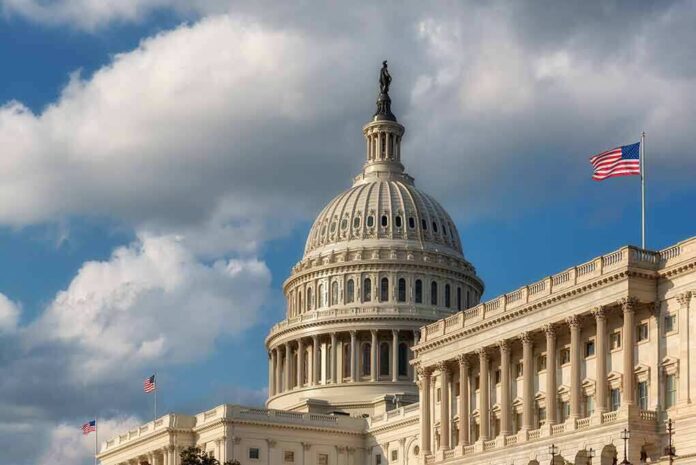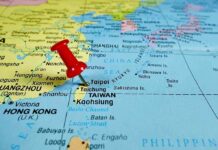
Canada and China are quietly mending diplomatic relations amid ongoing disputes over U.S. tariffs, election interference allegations, and a deadly fentanyl crisis that has ravaged North American communities.
Key Takeaways
- Canadian Prime Minister Mark Carney and Chinese Premier Li Qiang have agreed to “regularize” communication channels after years of diplomatic tension following the 2018 arrest of Huawei executive Meng Wanzhou.
- Both nations are mutually concerned about President Trump’s tariff policies and have pledged to work together to uphold free trade principles.
- The countries committed to collaboration on addressing the fentanyl crisis, though significant hurdles remain, including human rights disputes and Chinese election interference allegations.
- China acknowledged “unnecessary disturbances and serious difficulties” in the relationship but expressed willingness to improve bilateral relations.
- The diplomatic reset comes as both nations seek economic stability amid shifting global trade patterns.
Diplomatic Reset After Years of Tension
Canadian Prime Minister Mark Carney has initiated formal talks with China to normalize diplomatic relations after years of strained ties. The communication breakthrough was announced following a call between Carney and Chinese Premier Li Qiang, marking the first significant engagement between the two countries since Carney’s Liberal Party won the Canadian election in April. This diplomatic reset comes after relations deteriorated severely in 2018 when Canadian authorities arrested Huawei executive Meng Wanzhou on a U.S. warrant, which prompted China’s retaliatory detention of two Canadian citizens in what many observers called “hostage diplomacy.”
“Mark Carney spoke with the Premier of China, Li Qiang. The leaders exchanged views on bilateral relations, including the importance of engagement, and agreed to regularize channels of communication between Canada and China,” said the office of Canadian Prime Minister Mark Carney.
The initiative signals a pragmatic approach by Carney’s government, which recognizes China’s economic importance despite ongoing concerns about human rights violations, including Beijing’s treatment of Uyghur Muslims and crackdown on democratic freedoms in Hong Kong. Notably, while China did not officially congratulate Carney on his election victory, Premier Li expressed openness to rebuilding the relationship during their recent call.
Uniting Against Trump’s Tariffs
A key point of agreement between Canada and China appears to be their shared concern over President Trump’s tariff policies. Both nations have been significantly impacted by American trade measures and see mutual benefit in presenting a united front on trade issues. This alignment comes as President Trump has reinstituted and expanded tariffs on various imports, affecting global supply chains and increasing consumer costs in both countries.
“In recent years, China-Canada relations have faced unnecessary disturbances and encountered serious difficulties,” said Li
Premier Li further emphasized China’s willingness to “work with Canada to jointly uphold multilateralism and free trade,” a clear reference to countering what both nations view as American protectionism. The timing of this diplomatic renewal suggests strategic positioning as both countries separately negotiate with the Trump administration over tariff policies. For Canada, this creates a delicate balancing act between improving relations with China while maintaining its crucial economic partnership with the United States.
Addressing the Fentanyl Crisis
Perhaps the most pressing practical issue in the talks was cooperation on addressing the fentanyl epidemic that has devastated communities across North America. China remains the primary source of precursor chemicals used to manufacture fentanyl, which has killed hundreds of thousands of Americans and Canadians. Carney’s government has made combating the opioid crisis a priority and sees Chinese cooperation as essential to disrupting the supply chain of deadly synthetic drugs.
However, skepticism remains about China’s willingness to take meaningful action against fentanyl production and trafficking. Conservative critics point out that previous Chinese promises to crack down on fentanyl precursor exports have yielded limited results, with manufacturers simply modifying chemical formulations to circumvent regulations. The effectiveness of any new agreements will depend on consistent enforcement and genuine commitment from Beijing, which has previously used cooperation on drug trafficking as a bargaining chip in broader diplomatic negotiations.
Challenges Ahead
Despite the diplomatic thaw, significant obstacles remain in the Canada-China relationship. Allegations of Chinese interference in Canadian elections continue to be a major point of contention, with Canadian intelligence agencies documenting Beijing’s attempts to influence political outcomes. China has consistently denied these allegations, creating an ongoing trust deficit that complicates any attempts at rapprochement.
“Willing to work with Canada to jointly uphold multilateralism and free trade,” said Li
Human rights concerns also cast a shadow over the renewed relationship. Canada has been outspoken about China’s actions in Hong Kong and its treatment of Uyghur Muslims, which the U.S. government has classified as genocide. These fundamental differences in values and governance approaches represent persistent challenges that regularized communication alone cannot resolve. The pragmatic approach by Carney’s government appears to prioritize economic and security cooperation while maintaining a separate track for human rights concerns.












